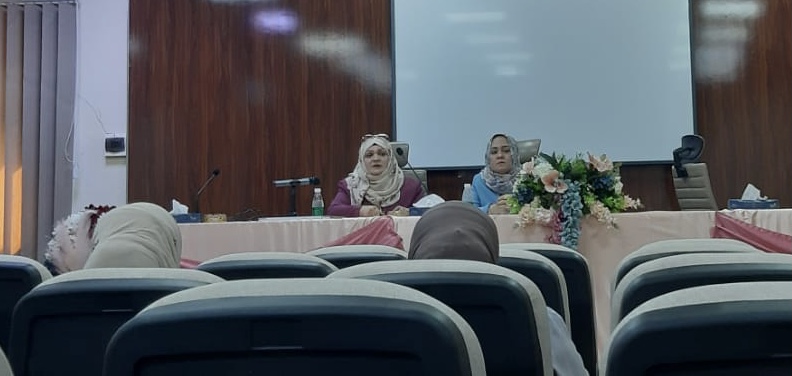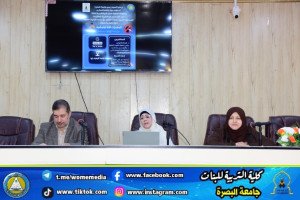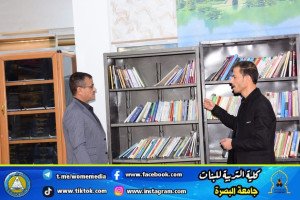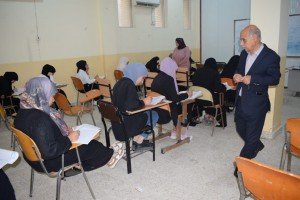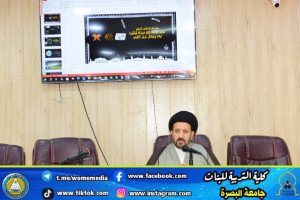
A lecturer at the College of Education for Women participates in a symposium on intellectual deviation and how to change abnormal behavior.
Dr. Rafif Abdel Hafez Al-Riahi, teaching in the Department of Educational and Psychological Sciences, participated in a symposium on intellectual deviation and how to get rid of abnormal behavior, organized by the College of Law at the University of Basra.
The symposium aimed to combat the phenomenon of intellectual deviation and terrorism in Muslim society by explaining its cause and presenting some of the demonstrations that exist within it in the Arab world in general and Iraq in particular.
In her lecture, Rutbi discussed the definition of intellectual deviation, its internal causes of burnout, the types of burnout, and ways to treat it. The safety of human thought, societal security and stability, and the sisters’ hesitation of the influence of misguidance must be concerned with controlling the human body in order to achieve salvation and not be carried away by advocates of misguidance, atonement, and demolition.
I also learned about the effects and dangers that amplify intellectual deviation on the national, such as inciting strife and sectarian conflicts, misleading and deceiving the youth and the young, the weakness of brevity as an entry point for intellectual exploitation and extremism, the beginning of violence, the spread of crime, raising suspicions against every leader, taking religious texts out of their context, distorting concepts, and choose into another abyss and some others. By making their blood, money, and their legitimate goals permissible.
The symposium recommended emphasizing correct traditional upbringing, for the existence of a circle of Islamic brotherhood to include the entire nation, and the call to choose friends from members with sound minds and moderate ideas, and not to follow temptations, desires and misguided thoughts in the collection of fatwas of ignorance and to adhere to the objectives of Sharia law and the reasons that derive from Sharia rulings.
